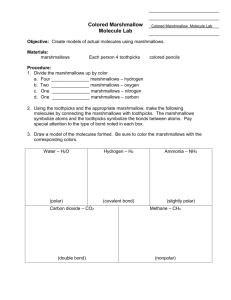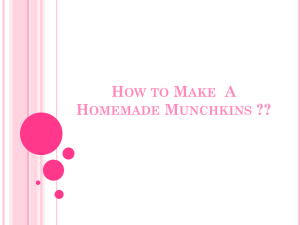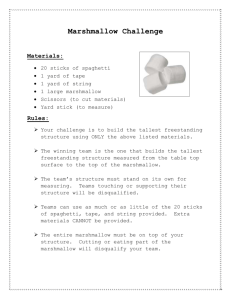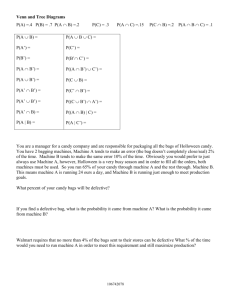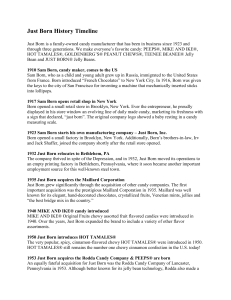The History of Marshmallows (An excerpt) By Mary Bellis, inventors
advertisement
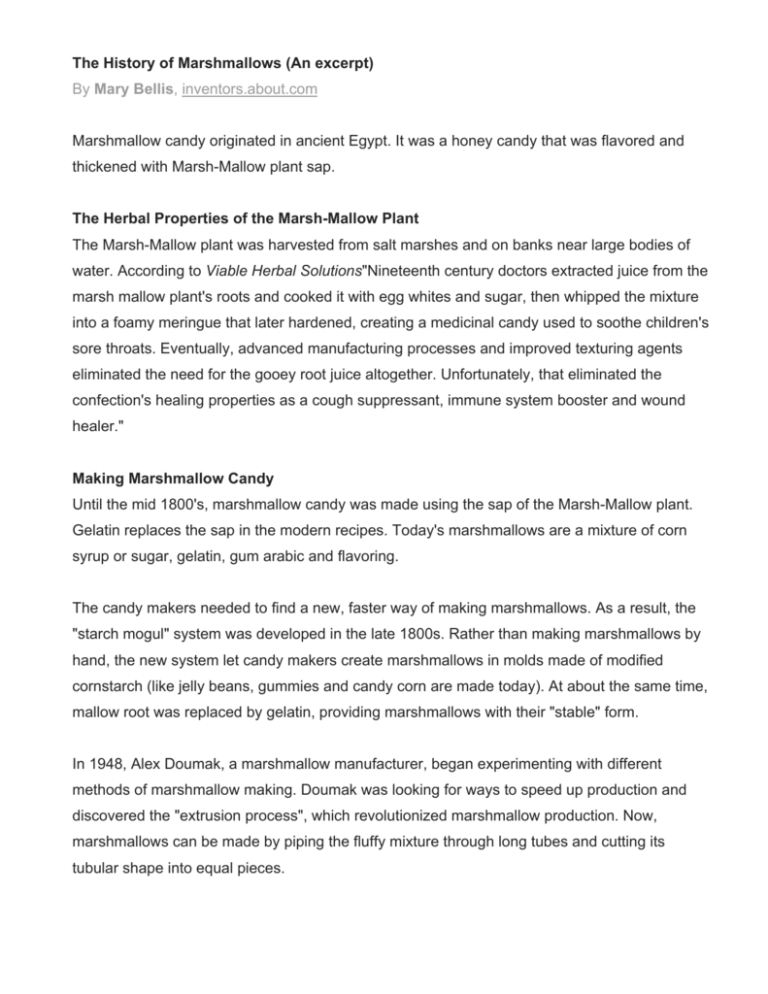
The History of Marshmallows (An excerpt) By Mary Bellis, inventors.about.com Marshmallow candy originated in ancient Egypt. It was a honey candy that was flavored and thickened with Marsh-Mallow plant sap. The Herbal Properties of the Marsh-Mallow Plant The Marsh-Mallow plant was harvested from salt marshes and on banks near large bodies of water. According to Viable Herbal Solutions"Nineteenth century doctors extracted juice from the marsh mallow plant's roots and cooked it with egg whites and sugar, then whipped the mixture into a foamy meringue that later hardened, creating a medicinal candy used to soothe children's sore throats. Eventually, advanced manufacturing processes and improved texturing agents eliminated the need for the gooey root juice altogether. Unfortunately, that eliminated the confection's healing properties as a cough suppressant, immune system booster and wound healer." Making Marshmallow Candy Until the mid 1800's, marshmallow candy was made using the sap of the Marsh-Mallow plant. Gelatin replaces the sap in the modern recipes. Today's marshmallows are a mixture of corn syrup or sugar, gelatin, gum arabic and flavoring. The candy makers needed to find a new, faster way of making marshmallows. As a result, the "starch mogul" system was developed in the late 1800s. Rather than making marshmallows by hand, the new system let candy makers create marshmallows in molds made of modified cornstarch (like jelly beans, gummies and candy corn are made today). At about the same time, mallow root was replaced by gelatin, providing marshmallows with their "stable" form. In 1948, Alex Doumak, a marshmallow manufacturer, began experimenting with different methods of marshmallow making. Doumak was looking for ways to speed up production and discovered the "extrusion process", which revolutionized marshmallow production. Now, marshmallows can be made by piping the fluffy mixture through long tubes and cutting its tubular shape into equal pieces.
